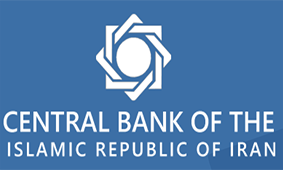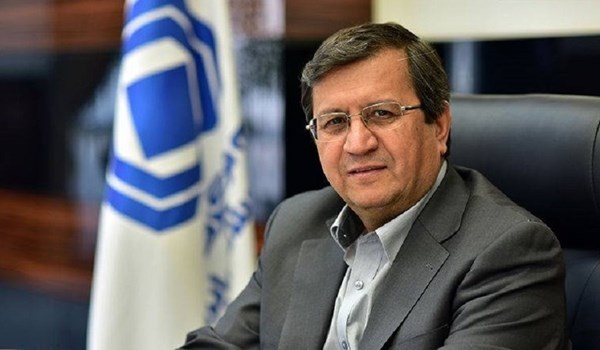
CBI: Foreigners Trying to Disturb Forex Market in Iran

“Based on our information, networks outside of the country are also working to increase the currency price,” said Hemmati on Monday, without elaborating, reassuring that prices of foreign currencies will return to normal levels in a very near future despite growing speculations that have affected the markets over the past days.
He added that prices in the forex market had surged over the past days mainly because of a recent government decision to increase the price of fuel and rumors that Iran would have problems funding a budget announced for the next local calendar year starting in late March.
“We do not treat the issue of currency rate and its fluctuations with hysteria,” said Hemmati, adding, “We will bring stability back to the forex market.”
The CBI chief said certain people were benefitting from creating a bubble in the prices of foreign currencies.
Reports from unofficial currency market in downtown Tehran on Monday showed that prices had surged by nearly 25 percent compared to late November.
Iran’s rial closed at 138,000 against the US dollar on Monday, the lowest on record for the national currency since early summer.
Hemmati said various factors had played a role in rial’s devaluation in recent days, including a continued unrest in neighboring Iraq which had significantly affected Iran’s exports to the Arab country.
He said demand for hard currency had also increased in December mainly because Iranian companies were clearing debts owed to foreigners in days leading to the Christmas.
The chief banker said government’s announcement of an annual budget bill on Monday had also fueled speculations in the market that Iran would face financial difficulties next year mainly because of the American sanctions imposed on the country.
Last month, Hemmati underlined government's full control over the foreign exchange market, and expressed hope that reduction of inflation rate would continue in the next few months.
A week before that, he had said that the recent small loss of the national currency of rial’s value against foreign exchange is a minor fluctuation of no concern, advising the masses not to take the market of foreign currencies as an investment opportunity.
Hemmati had also, in an Instagram post, on November 05 recounted that the value of his country’s national currency had improved by 21%, adding that Tehran had succeeded in beating the US sanctions.
Marking the first anniversary of the start of Washington’s campaign to cut Iran’s oil exports to zero, Hemmati said that stability is returning to the country's economy while the US has employed banking sanctions, economic war, and also restricted Iran's oil sale in the past year to make the Iranian economy implode.
He added that it is exactly one year since the US started an economic war, banking sanctions, and also attempted to push Iran's oil sale to zero.
Hemmati said that it was very difficult to predict developments in coming years and the situation was worrying.
The top banker of the country added that the US failed to reach its ultimate goal, which was bringing Iran to its knees.
Hemmati said that the Iranian rial has gained 21% of its value back compared to US dollar in the past year and the impact on the welfare of the lower-income class of Iranian people is now being fixed.



Trump weighs using $2 billion in CHIPS Act funding for critical minerals

Codelco cuts 2025 copper forecast after El Teniente mine collapse

Electra converts debt, launches $30M raise to jumpstart stalled cobalt refinery

Barrick’s Reko Diq in line for $410M ADB backing

Abcourt readies Sleeping Giant mill to pour first gold since 2014

Nevada army depot to serve as base for first US strategic minerals stockpile

SQM boosts lithium supply plans as prices flick higher

Viridis unveils 200Mt initial reserve for Brazil rare earth project

Tailings could meet much of US critical mineral demand – study

Kyrgyzstan kicks off underground gold mining at Kumtor

Kyrgyzstan kicks off underground gold mining at Kumtor

KoBold Metals granted lithium exploration rights in Congo

Freeport Indonesia to wrap up Gresik plant repairs by early September

Energy Fuels soars on Vulcan Elements partnership

Northern Dynasty sticks to proposal in battle to lift Pebble mine veto

Giustra-backed mining firm teams up with informal miners in Colombia

Critical Metals signs agreement to supply rare earth to US government-funded facility

China extends rare earth controls to imported material

Galan Lithium proceeds with $13M financing for Argentina project

Kyrgyzstan kicks off underground gold mining at Kumtor

Freeport Indonesia to wrap up Gresik plant repairs by early September

Energy Fuels soars on Vulcan Elements partnership

Northern Dynasty sticks to proposal in battle to lift Pebble mine veto

Giustra-backed mining firm teams up with informal miners in Colombia

Critical Metals signs agreement to supply rare earth to US government-funded facility

China extends rare earth controls to imported material

Galan Lithium proceeds with $13M financing for Argentina project

Silver price touches $39 as market weighs rate cut outlook

















